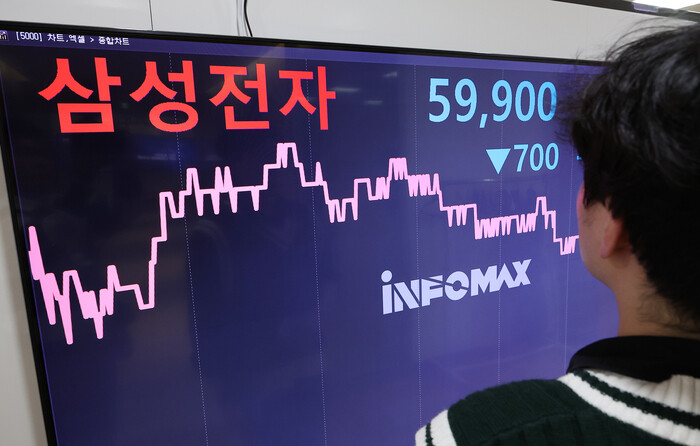
Seoul, South Korea – Samsung Electronics, South Korea's tech giant, has seen its stock price plummet to a new 52-week low, fueling concerns about the company's future prospects. Shares closed at 49,900 won on Thursday, marking a 44% decline since July.
Foreign investors have been net sellers of Samsung shares for over two months, offloading nearly 16 trillion won worth of stock since September. This sustained selling pressure has contributed significantly to the stock's decline.
What's behind the fall?
Several factors are driving Samsung's downward trajectory:
Weakening semiconductor demand: Slowing demand for semiconductors has weighed heavily on the company's performance.
Geopolitical uncertainties: Concerns about potential US export restrictions on semiconductors to China have added to the bearish sentiment.
Competitive pressures: Samsung's rivals, particularly in the DRAM and HBM markets, are gaining ground, eroding its market share.
Valuation concerns: Despite the recent decline, some analysts believe Samsung's stock is still overvalued given its current performance and outlook.
Investor sentiment turns bearish
Foreign investors have been particularly cautious about Samsung, with net selling exceeding 16 trillion won since September. This significant outflow of foreign capital has exacerbated the downward pressure on the stock.
Analysts have been revising their target prices downward, reflecting growing concerns about the company's future prospects. For instance, Kiwoom Securities cut its target price for Samsung to 75,000 won from 90,000 won, while Mirae Asset Securities lowered its target price to 84,000 won from 110,000 won.
Hope for a turnaround?
While the outlook for Samsung appears bleak, some analysts believe the stock may have bottomed out. However, they caution that a sustained recovery will depend on several factors, including an improvement in the global semiconductor market, easing geopolitical tensions, and Samsung's ability to address its competitive challenges.
"While Samsung's stock may have reached a bottom in terms of price, foreign investors still seem cautious," said Kim Sang-hoon, head of the research center at KB Securities. "We need to see a shift in sentiment before we can expect a sustained recovery."
As Samsung navigates these challenging times, investors will be watching closely to see if the company can successfully execute its turnaround strategy and restore investor confidence.
[Copyright (c) Global Economic Times. All Rights Reserved.]




























